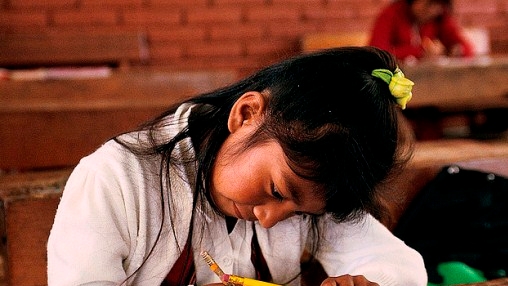During classes, you don’t usually expect to see too many parents.
Teachers and school directors take care of the education of the children, and those kids learn and play with their classmates.
But what if the participation and the interest of the parents and the community were as important to make it all work?
Getting parents involved in school management has a positive impact on the educational outcomes of their children, a World Bank analysis points out.
“The experience from high performing countries—as measured by their performance in international tests such as PISA—indicates that: Education systems where schools had more autonomy over teaching content and student assessment tended to perform better on the PISA test,” explains Raja Bentaouet Kattan, senior education policy specialist at the World Bank.
In Mexico, the “Programa de Escuelas de Calidad” or “Quality School Program” aims at boosting the social participation in public schools, meaning that parents, teachers, children and the community have a larger say in how the school is managed.
A voluntary action by the schools, the community has the chance to elaborate a plan to improve their school and highlight the things they would change. Then the plan goes to local officials, and, when approved, receives the money necessary to implement it.
The school community is then involved in carrying out of the plan, and the parents take care of monitoring the funds.
" School Based Management makes schools accountable to its local stakeholders and to national and local authorities," says Bentaouet Kattan.
More indigenous students
The World Bank has been supporting this national program since its inception, giving financial support for the school grants as well as technical assistance.
With this support, more schools are joining in the Quality School program – over 26% of all basic education schools are now participating, up from 20% in 2010.
Almost 21% of the participating schools teach in Spanish and an indigenous language and 44.5% are in marginalized areas, compared to 40% in 2010.
"The ‘Programa de Escuelas de Calidad’ is a key factor for boosting autonomy and accountability in schools and has evolved to be recognized as a program that transforms educational quality,” says Bentaouet Kattan,"The program has shown concrete results on improving student performance, and provides a basis for scaling up practices to the education system."

